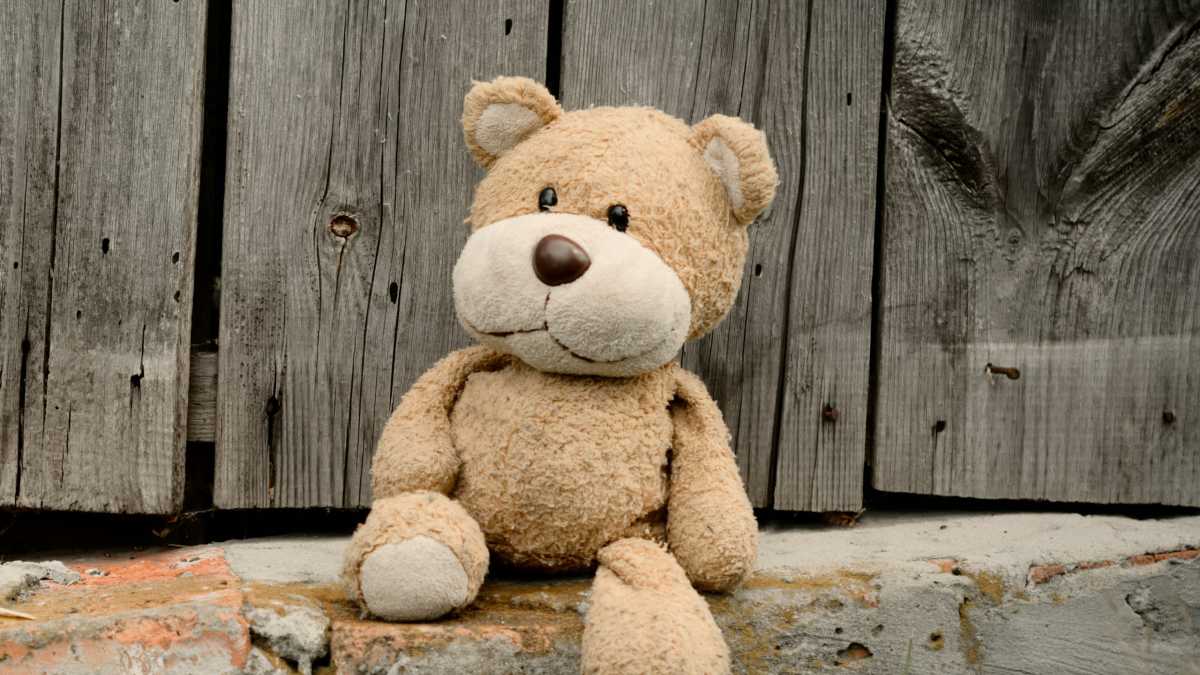
3 Wholesome Reasons Why We Can't Seem To Let Go Of Our Childhood Toys
They may be old and fraying at the ends, but research shows that we have very good reasons for keeping our childhood security blankets and toys.

By Mark Travers, Ph.D. | February 16, 2024
Do you ever catch yourself smiling at the sight of your childhood teddy bear, wondering why it still holds such a special place in your heart? While these toys can offer a unique window into one's connection with their past, research reveals that this universal sentiment holds a greater purpose than just offering a trip down memory lane.
It is, of course, important to ensure that adults are not overly dependent on these objects, even if they were inseparable from them as children. However, it is possible and even beneficial to have a healthy relationship with your childhood toy. A 2017 survey found that more than half of U.S. adults still have their childhood teddy bears.
Here are three reasons why we remain attached to our childhood toys as adults.
1. Childhood Toys Provide Sensory Comfort
A 2023 study found that regardless of one's age, owning a teddy bear is comforting due to a combination of how it looks, smells and especially how it feels to touch and hold. Factors such as texture, weight and softness connect owners to these toys throughout their lives.
Another study in 2011 found that touching a teddy bear could even support an individual through feelings of social exclusion and make them behave in more prosocial ways as a result of the positive emotions elicited by this comforting touch.
Huggable objects have also been linked to increased levels of interpersonal trust and decreased cortisol levels in the body, which indicate a toy's ability to reduce our stress levels as we hold them.
2. Childhood Toys Alleviate Anxiety
Research shows that when infants are separated from their primary caregivers (usually their parents) at moments such as bed time or gaps between feedings, they tend to attach to a "transitional object," which helps them through this phase of separation by reducing their anxiety.
Growing children, requiring predictability and stability, seek out this transitional object in the absence of their parents, becoming attached to something comforting, soft and familiar that reminds them of a caregiver.
Research also shows that children attribute mental states to toys they are emotionally attached to, seeing them as capable of thought and having their own inner lives, often because childhood toys can resemble sentient beings and have "faces," just like their caregivers do.
A study in 2021 suggests that, as adults, we might have a similar reaction to our toys. Researchers found that when non-human objects are imbued with human-like qualities, we can become attached to them as they fulfill our psychological needs for comfort and pleasantness, a sense of self-identity as well as a belief in our own abilities.
Additionally, childhood toys can provide a sense of security to us as adults, especially when we are anxious about our relationships with others. Research shows that when an individual perceives someone close to them as unreliable, they experience attachment anxiety and sometimes seek comfort in an inanimate object that would not be able to hurt them.
Holding a teddy bear has also been linked to less anxiety around death among individuals with low self-esteem, suggesting that the attachment to one's childhood toys could play an important role in one's mental well-being.
3. Childhood Toys Are Connected To Our Sense Of Self
Research shows that childhood toys are also intertwined with our self-concept. As infants, we do not realize that we are separate from our mothers after we have left their wombs. When we start to be physically separated from our caregivers, we are still grappling with the fact that we are distinct from them and consequently attach our sense of self to our childhood toys during this transitional period.
With time, our transitional objects also become associated with childhood memories, people we love, familiar places and meaningful life events. The loss of these objects can be a very real source of grief at any point in one's life, symbolic of a loss of self or beloved memories, which is why as adults we may work hard to preserve these cherished relics.
Our childhood toys continue to serve as steadfast companions, offering comfort and a sense of security as we navigate the complexities of adult life. These toys are not only of sentimental value, but continue to fulfill essential psychological and emotional needs well into adulthood. It seems that no one is ever too old for a toy and a childhood teddy can bridge the gap between our past and present, providing solace and connection that transcends the passage of time.
A similar version of this article can also be found on Forbes.com, here.
